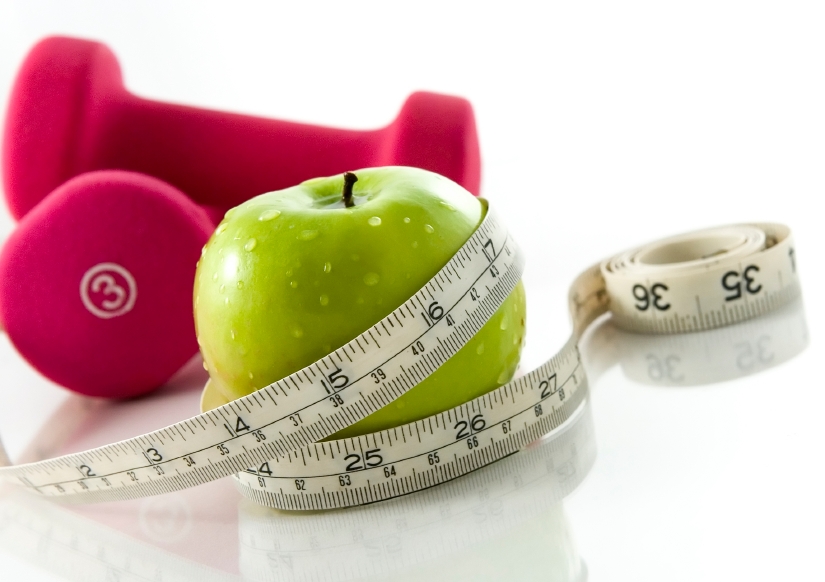Semua yang Perlu Diketahui Tentang Berolahraga di Bulan Ramadhan
Tidak bisa makan dan minum terasa seperti mimpi buruk untuk mereka yang memiliki program olahraga rutin. Kapan waktu terbaik untuk latihan? Apa yang mesti diperhatikan ketika ingin tetap olahraga saat berpuasa? Gold’s Gym menyelidiki! Kami berbicara dengan 2 dari personal trainer kami untuk menjawab semua pertanyaan yang ada di kepala kita semua.
Berolahraga saat puasa artinya kita berlatih dalam kondisi kekurangan asupan kalori dan energi, atau yang disebut dengan kondisi hipokalori. Ketika berpuasa, tubuh kita pun lebih rentan untuk dehidrasi karena kurangnya asupan cairan namun bukan berarti kita harus puasa gym juga! Berolahraga saat puasa sangat dianjurkan untuk menjaga kebugaran dan kondisi fisik, tentu saja dengan beberapa penyesuaian.
Kenapa sih Harus Berolahraga Saat Puasa?
Olahraga sudah terbukti dapat meningkatkan stamina, begitu juga di bulan puasa. Hanya karena berpuasa, kita jangan langsung berhenti dengan program biasa. Berhenti olahraga total akan mempengaruhi performa kamu, dan ketika bulan puasa selesai dan kamu ingin kembalik ke program awal, badanmu harus menyesuaikan lagi dengan penurunan performa akibat berhenti berolahraga.
Personal Trainer Gold’s Gym Indonesia, Tommy Gultom, mengajurkan, “Pastikan Anda mendapatkan nutrisi yang benar saat bulan puasa serta istirahat yang cukup untuk menunjang efektifitas hasil latihan.” Semua orang bisa tetap mencapai target fitnessnya, walaupun pada bulan puasa asal mereka tau apa yang mesti diperhatikan, “Tapi patut dicatat, bahwa jika Anda ingin meningkatkan massa otot akan membutuhkan usaha lebih, karena kondisi hipokalori dan dehidrasi selama sebulan akan menyebabkan kecenderungan tubuh untuk memecah otot menjadi energi.” Jelas Tommy.
Pemanasan dan Pendinginan, Jangan Lupa!
Puasa atau tidak, pemanasan dan pendinginan itu sangat penting. Patut diketahui bahwa fungsi pemanasan adalah untuk meningkatkan suhu dan metabolisme tubuh Anda secara bertahap untuk mempersiapkan tubuh untuk latihan. Sedangkan fungsi pendinginan setelah latihan adalah untuk menurunkan intensitas secara bertahap dan melakukan peregangan, yang mana sangat penting untuk mengembalikan fungsi otot dan ruang gerak sendi Anda serta menjaga dan mengembalikan asupan darah ke jantung Anda agar tetap lancar.
Tidak ada pergerakan-pergerakan spesifik yang harus dilakukan ataupun dihindari. Yang harus diingat, pemanasan tidak boleh membuat tubuh lelah, lakukan 10-15 menit saja. Jika Anda memiliki problem pada persendian, disarankan untuk berkonsultasi pada dokter Anda atau Personal Trainer Gold’s Gym untuk gerakan pemanasan dan pendinginan yang aman dan sesuai.
Pilih Waktu yang Tepat!
Kondisi hipokalori serta dehidrasi tentu membuat kondisi fisik lemah dan lemas. Oleh karena itu pemilihan waktu latihan pada saat bulan puasa sangat penting untuk ‘mengakali’ kondisi lemas tersebut dan tetap mendapatkan manfaat olahraga yang efektif.
Ada beberapa pilihan untuk memilih waktu. Kalau kamu merasa bisa menahan lapar dan haus, kamu bisa berolahraga 1 – 2 jam sebelum berbuka. Kamu bahkan bisa berolahraga di pagi hari kalau sanggup. Tapi harus ingat untuk mengatur intensitas olahraga sesuai kondisi. Kalau berolahraga di pagi hari kamu bisa mengurangi intensitas jadi rendah, tapi kalau berolahraga sebelum berbuka kamu bisa menggunakan intensitas yang normal. Satu hal yang mesti diperhatikan: dehidrasi. “Setiap kali kamu merasa pusing, kamu harus segera beristirahat sebentar, dilanjutkan dengan pendinginan untuk menyelesaikan waktu latihan kamu.” Ucap Sabilah Nuramandika atau lebih dikenal dengan Dika, personal trainer dari Gold’s Gym Thamrin City.
Apabila kamu ingin berolahraga setelah berbuka, waktu yang baik adalah 1-2 jam sesudah berbuka puasa. Dalam jam ini, tidak ada banyak perubahan dengan olahraga di hari biasa.
Frekuensi pun Harus Tepat!
Banyak orang yang bingung dengan frekuensi waktu berolahraga dalam seminggu. Bolehkah berlatih setiap hari? Tommy menyarankan frekuensi latihan 3-5 kali seminggu. dengan perubahan pada intensitas. “Jika Anda latihan 3 kali seminggu, Anda bisa mencoba latihan berintensitas sedang hingga tinggi. Bila Anda latihan 5 kali seminggu, maka lakukan latihan dengan intensitas ringan hingga sedang. Untuk latihan beban diatas 3 kali seminggu, Anda juga dapat membagi otot anda dalam beberapa bagian dan melatihnya bergantian,” ujar Tommy. Karena kita berlatih dalam kondisi kurang energi dan cairan inilah, sesuaikan intensitas latihan dengan kemampuan anda.
Untuk jenis latihan yang boleh dilakukan saat puasa, sesuaikan dengan target latihan awal Anda masing-masing. Latihan apapun pada dasarnya boleh saja, yang penting hindari latihan yang kontradikatif dengan kondisi kesehatan Anda sekarang. Lakukan health screening dengan Personal Trainer Gold’s Gym untuk mengetahuinya.
Ingin lebih besar? Makan Banyak!
Sulit untuk hanya berbicara tentang latihan tanpa menyentuh tentang pola makan juga, jadi ini yang harus kamu tau. Dengan waktu dan asupan makan berkurang, puasa memang waktu yang cocok untuk mengurangi persentasi lemak di tubuh. Tapi kalau kamu tetap bersikeras untuk meningkatkan masa otot dan tubuh, jangan takut! Kamu cuma harus mencari celahnya. “Agar kamu bisa mempertahankan atau bahkan meningkatakan kenaikan massa otot saat berpuasa, kamu harus memastikan kalau kalori yang masuk cukup saat suhur dan berbuka. Dan ini sangat penting: kamu juga harus memastikan kamu mendapatkan protein yang cukup!” Ujar Dika. Kamu bisa mendapatkan protein dari makanan saja atau dari suplemen, tapi yang pertama lebih dianjurkan karena lebih sehat dan natural.
Kalau kamu ingin berolahraga sehabis berbuka, modelnya akan seperti ini:
buka puasa dengan karbohidrat sederhana dilanjutkan oleh latihan dan diakhiri dengan makan utama. Untuk membatalkan puasa saat berbuka, pilihlah makanan yang mengandung karbohidrat cepat cerna, atau yang disebut dengan karbohidrat sederhana, seperti gula, buah, madu, atau susu, agar tentunya dapat cepat diolah menjadi energi untuk berolahraga. Setelah selesai berlatih baru lanjutkan dengan makan besar.
Jika memiliki kondisi penyakit tertentu, misalnya diabetes, selalu konsultasikan dengan dokter dan nutritionist Anda untuk mendapatkan pola makan dan latihan yang sesuai untuk kondisi Anda.
Gold's Gym Mall Ciputra | Gold's Gym Mall of Indonesia | Gold's Gym Thamrin City | Gold's Gym Cilandak Town Square | Gold's Gym Baywalk Mall Pluit | Gold's Gym Kalibata City Mall | Gold's Gym Braga Citywalk | Gold's Gym Cihampelas Walk | Gold's Gym Summarecon Mall Serpong | Gold's Gym Mall @ Alam Sutera | Gold's Gym Bintaro X-change | Gold's Gym The Breeze BSD | Gold's Gym Grand City Surabaya | Gold's Gym Surabaya Town Square | Gold's Gym Grand Metropolitan Bekasi





